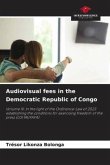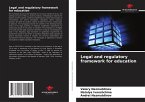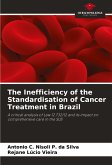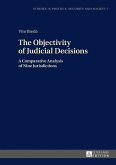The study discusses the changes that involve the New Legal Framework for Basic Sanitation, analyzing and questioning the changes and its main goals, based on the conception of water as a fundamental human right, understood as the right to life. Data regarding availability and consumption of water in Brazil and access to sanitation in each region of the country were collected through the National Sanitation Information System (SNIS), in order to compare the changes in the legislation based on indicators on the provision of water, sewage, solid waste management and rainwater management services by the providers operating in the country. The history of basic sanitation in Brazil is discussed, as well as the legislations that address the subject until being triggered in the New Sanitation Framework, to analyze the advances, challenges and concerns that its enactment entails, questioning whether the concession to the private initiative of sanitation services is the solution that best suits the culture and interests of the country.
Bitte wählen Sie Ihr Anliegen aus.
Rechnungen
Retourenschein anfordern
Bestellstatus
Storno








